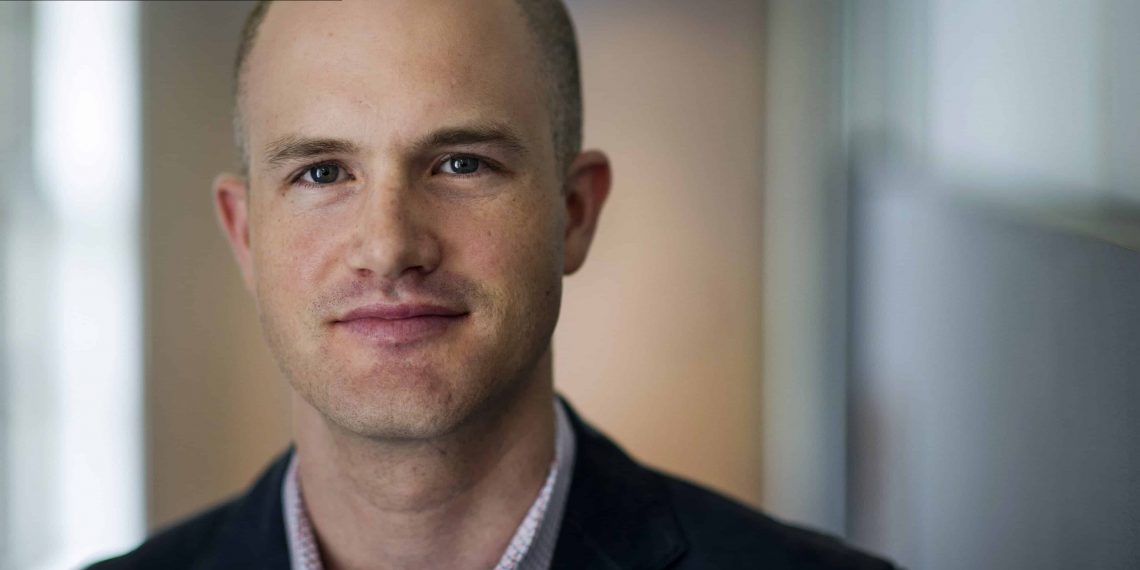Armstrong Backs Bitcoin as Sole Choice for U.S. Crypto Reserve Amid Industry Debate
03.03.2025 18:00 1 min. read Alexander Zdravkov
Coinbase CEO Brian Armstrong believes that if the U.S. were to establish a crypto reserve, Bitcoin should be its primary asset, likening it to a modern successor to gold.
While he acknowledged that a broader basket of cryptocurrencies could be an alternative, he argued that Bitcoin alone offers the clearest and most straightforward approach.
His remarks were a response to Donald Trump’s recent announcement of a proposed Crypto Strategic Reserve, which would include Bitcoin, Ethereum, Solana, XRP, and Cardano. Trump stated that his crypto working group had been instructed to move forward with the initiative, though details remain unclear.
Arthur Hayes, co-founder of BitMEX, dismissed the announcement as lacking substance, questioning how the U.S. government would fund such a reserve without congressional approval or a significant rise in gold prices.
Meanwhile, Binance founder Changpeng Zhao (CZ) took a more optimistic stance, urging the community to focus on long-term industry growth and suggesting that additional cryptocurrencies could be added over time.
The debate over whether the U.S. should adopt a Bitcoin-only strategy or diversify its crypto holdings remains unresolved. Further policy insights are expected during the upcoming White House Crypto Summit on March 7.
-
1
Ukraine Allegedly Eyes Bitcoin Reserves in Bold Crypto Policy Shift
15.05.2025 18:00 2 min. read -
2
New Proposal Aims to Replace Satoshis with Simplified Bitcoin Unit System
20.05.2025 13:00 2 min. read -
3
Bitcoin Will Hit $1 Million Within 3 Years, According to BitMEX Founder
16.05.2025 16:00 1 min. read -
4
Analysts Warn Bitcoin Is Easier to Attack Than Ethereum
18.05.2025 14:00 2 min. read -
5
Economic Instability and Political Shift Fueling Bitcoin’s Rise – Galaxy Digital CEO
23.05.2025 12:00 2 min. read
U.S. Treasury Launches Record-Breaking Bond Buyback Amid Market Volatility
In a move not seen in decades, the U.S. Treasury Department has initiated a historic $10 billion bond buyback—its largest ever—targeting securities set to mature between mid-2025 and mid-2027.
Are We Witnessing the Final Bitcoin Cycle as We Know It?
Swan, a Bitcoin-focused financial firm, has issued a striking market update suggesting that the current BTC cycle isn’t just another repeat of the past—it might be the last of its kind.
Yuga Labs Moves to Dismantle ApeCoin DAO in Favor of Centralized Structure
In a bold move to reshape the future of ApeCoin, Yuga Labs has introduced a proposal that would dissolve the existing ApeCoin DAO and replace it with a streamlined management body called ApeCo.
Ross Ulbricht Receives $31M in BTC — Who Sent It, and Why Now?
Ross Ulbricht, founder of the infamous Silk Road marketplace, is back in the headlines after receiving a mysterious transfer of 300 BTC—valued at roughly $31 million.
-
1
Ukraine Allegedly Eyes Bitcoin Reserves in Bold Crypto Policy Shift
15.05.2025 18:00 2 min. read -
2
New Proposal Aims to Replace Satoshis with Simplified Bitcoin Unit System
20.05.2025 13:00 2 min. read -
3
Bitcoin Will Hit $1 Million Within 3 Years, According to BitMEX Founder
16.05.2025 16:00 1 min. read -
4
Analysts Warn Bitcoin Is Easier to Attack Than Ethereum
18.05.2025 14:00 2 min. read -
5
Economic Instability and Political Shift Fueling Bitcoin’s Rise – Galaxy Digital CEO
23.05.2025 12:00 2 min. read


